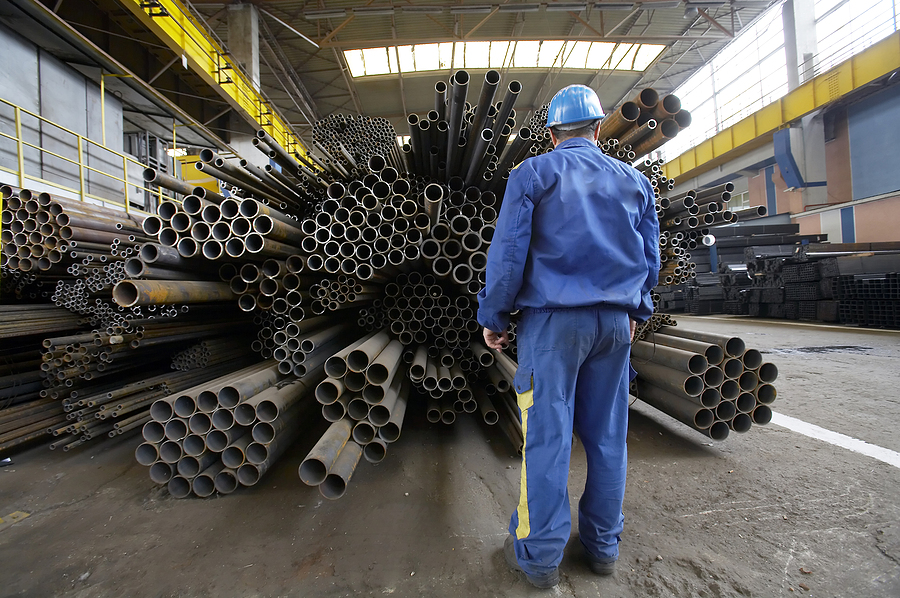Modern buildings must include heating, ventilation, and air conditioning (HVAC) systems to give residents comfort and good indoor air quality. Over time, these systems may become outdated, damaged, or replaced, leading to the accumulation of HVAC scrap materials.
Recycling these metals conserves natural resources and reduces environmental impact. This article will discuss the top metal recycling tips for HVAC scrap to help individuals and businesses maximize their recycling efforts and minimize waste.
Identify Recyclable Metals
HVAC systems contain various valuable metals for recycling, including copper, aluminum, steel, and brass. Copper is commonly found in refrigerant lines, coils, and wiring, while aluminum is used in condensers and heat exchangers.
Steel components such as ductwork, frames, and casings are also recyclable, along with brass fittings and connectors. By identifying and segregating these metals during disassembly, you can streamline the metal recycling process and maximize the value of the scrap materials.
Separate Metals by Type
To optimize the recycling process and achieve the best possible prices for your scrap materials, it’s important to separate different types of metals before recycling. Use magnets to separate ferrous metals like steel from non-ferrous metals like copper, aluminum, and brass. Sort these metals into designated containers or bins to remain segregated throughout recycling. Separating metals by type makes it easier for recyclers to process and reprocess the materials efficiently.
Remove Non-Metallic Components
Before recycling HVAC scrap, removing any non-metallic components that may be attached to the metals is essential. This includes insulation, plastic covers, rubber seals, and other materials that are not recyclable.
Use tools like wire cutters, screwdrivers, and pliers to dismantle the HVAC system and extract the metal components. By separating metals from non-metallic materials, you not only improve the quality of the scrap but also reduce contamination and processing costs for recyclers.
Clean and Prepare Metals
To obtain the highest possible value for your scrap metals, it’s essential to clean and prepare them before recycling. Using suitable cleaning agents and tools is necessary to keep metal surfaces clean and effectively remove contaminants.
Cut more significant metal components into smaller pieces to facilitate handling and transportation bundles or compact metal materials to optimize storage space and minimize transportation costs. Clean, prepared metals command higher prices in the recycling market and are more desirable to recyclers.
Find a Reputable Recycling Facility
Choosing the proper recycling facility is crucial for maximizing the value of your scrap and ensuring responsible recycling practices. Look for reputable recycling facilities specializing in processing metals and have experience handling scrap materials.
Ensure the facility has a license and certification to handle hazardous materials and adheres to environmental regulations and safety standards. Additionally, inquire about the facility’s recycling processes, equipment, and end markets for recycled materials to ensure transparency and accountability.
Research Current Market Prices
Before selling your scrap materials to a recycling facility, research current market prices for the metals you intend to recycle. Metal prices fluctuate based on market demand, global economic conditions, and other factors, so staying informed about current pricing trends is essential.
Check online metal exchanges, commodity price indexes, and local scrap yards to understand the prevailing market prices for copper, aluminum, steel, and other metals. You can maximize your returns and optimize your recycling efforts by selling your scrap materials at the right time and to the right buyer.
Consider Environmental Benefits
In addition to the financial incentives of metal recycling, it’s essential to consider the environmental benefits of diverting HVAC scrap from landfills and incinerators. Recycling metals conserves natural resources, reduces energy consumption, and minimizes greenhouse gas emissions
associated with mining, extraction, and manufacturing processes. Recycling scrap helps conserve valuable resources, reduce environmental pollution, and create a more sustainable future for future generations.
Metal recycling is an effective way to reduce waste, conserve resources, and minimize environmental impact, particularly when it comes to HVAC scrap materials. By following these top metal recycling tips, individuals and businesses can maximize the value of their HVAC scrap and contribute to a more sustainable and circular economy.
By identifying recyclable metals, separating them by type, removing non-metallic components, cleaning and preparing the metals, finding a reputable recycling facility, researching current market prices, and considering the environmental benefits, you can ensure responsible recycling practices and positively impact the planet.













Leave a Reply